Filter by
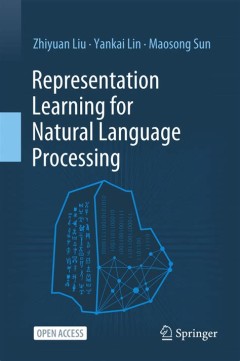
Representation Learning for Natural Language Processing
This open access book provides an overview of the recent advances in representation learning theory, algorithms and applications for natural language processing (NLP). It is divided into three parts. Part I presents the representation learning techniques for multiple language entries, including words, phrases, sentences and documents. Part II then introduces the representation techniques for th…
- Edition
- 1
- ISBN/ISSN
- 9789811555732
- Collation
- XXIV, 334 hlm; ill., lamp.,
- Series Title
- -
- Call Number
- -

European Language Grid: A Language Technology Platform for Multilingual Europe
This open access book provides an in-depth description of the EU project European Language Grid (ELG). Its motivation lies in the fact that Europe is a multilingual society with 24 official European Union Member State languages and dozens of additional languages including regional and minority languages. The only meaningful way to enable multilingualism and to benefit from this rich linguistic …
- Edition
- 1
- ISBN/ISSN
- 978-3-031-17258-8
- Collation
- -
- Series Title
- Cognitive Technologies
- Call Number
- XXX, 360
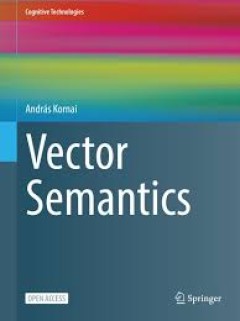
Vector Semantics
This open access book introduces Vector semantics, which links the formal theory of word vectors to the cognitive theory of linguistics. The computational linguists and deep learning researchers who developed word vectors have relied primarily on the ever-increasing availability of large corpora and of computers with highly parallel GPU and TPU compute engines, and their focus is with endow…
- Edition
- -
- ISBN/ISSN
- 9789811956072
- Collation
- XVI, 273
- Series Title
- -
- Call Number
- -

From Opinion Mining to Financial Argument Mining
Opinion mining is a prevalent research issue in many domains. In the financial domain, however, it is still in the early stages. Most of the researches on this topic only focus on the coarse-grained market sentiment analysis, i.e., 2-way classification for bullish/bearish. Thanks to the recent financial technology (FinTech) development, some interdisciplinary researchers start to involve in the…
- Edition
- -
- ISBN/ISSN
- 978-981-16-2881-8
- Collation
- X, 95
- Series Title
- SpringerBriefs in Computer Science (BRIEFSCOMPUTER)
- Call Number
- 001 CHE o
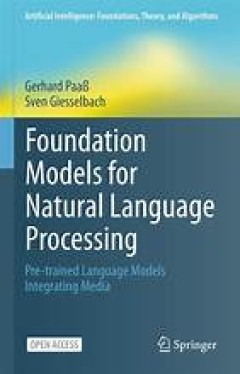
Foundation Models for Natural Language Processing
This open access book provides a comprehensive overview of the state of the art in research and applications of Foundation Models and is intended for readers familiar with basic Natural Language Processing (NLP) concepts. Over the recent years, a revolutionary new paradigm has been developed for training models for NLP. These models are first pre-trained on large collections of text documen…
- Edition
- 1
- ISBN/ISSN
- 978-3-031-23190-2
- Collation
- -
- Series Title
- Artificial Intelligence: Foundations, Theory, and Algorithms
- Call Number
- XVIII, 436
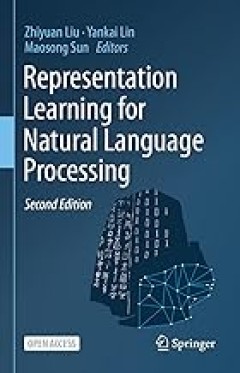
Representation Learning for Natural Language Processing
This book provides an overview of the recent advances in representation learning theory, algorithms, and applications for natural language processing (NLP), ranging from word embeddings to pre-trained language models. It is divided into four parts. Part I presents the representation learning techniques for multiple language entries, including words, sentences and documents, as well as pre-train…
- Edition
- -
- ISBN/ISSN
- 978-981-99-1599-6
- Collation
- -
- Series Title
- -
- Call Number
- -
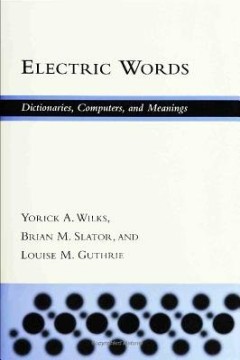
Electric Words: Dictionaries, Computers, and Meanings
"A Bradford book."The use of computers to understand words continues to be an area of burgeoning research. Electric Words is the first general survey of and introduction to the entire range of work in lexical linguistics and corpora -- the study of such on-line resources as dictionaries and other texts -- in the broader fields of natural-language processing and artificial intelligence. The auth…
- Edition
- -
- ISBN/ISSN
- 9780262286244
- Collation
- 1 online resource (viii, 289 pages) :illustrations.
- Series Title
- -
- Call Number
- -
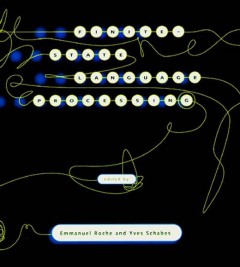
Finite-state language processing
"A Bradford book."Finite-state devices, which include finite-state automata, graphs, and finite-state transducers, are in wide use in many areas of computer science. Recently, there has been a resurgence of the use of finite-state devices in all aspects of computational linguistics, including dictionary encoding, text processing, and speech processing. This book describes the fundamental proper…
- Edition
- -
- ISBN/ISSN
- 9780262290951
- Collation
- 1 online resource (xv, 464 pages) :illustrations.
- Series Title
- -
- Call Number
- -

Supertagging :using complex lexical descriptions in natural language processing
The last decade has seen computational implementations of large hand-crafted natural language grammars in formal frameworks such as Tree-Adjoining Grammar (TAG), Combinatory Categorical Grammar (CCG), Head-driven Phrase Structure Grammar (HPSG), and Lexical Functional Grammar (LFG). Grammars in these frameworks typically associate linguistically motivated rich descriptions (Supertags) with word…
- Edition
- -
- ISBN/ISSN
- 9780262312486
- Collation
- 1 online resource (xxiii, 488 pages :illustrations)
- Series Title
- -
- Call Number
- -
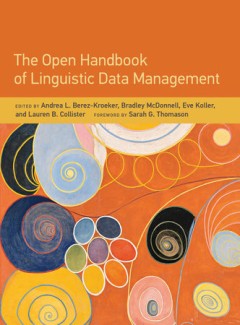
The open handbook of linguistic data management
A guide to principles and methods for the management, archiving, sharing, and citing of linguistic research data, especially digital data.Doing language science depends on collecting, transcribing, annotating, analyzing, storing, and sharing linguistic research data. This volume offers a guide to linguistic data management, engaging with current trends toward the transformation of linguistics i…
- Edition
- -
- ISBN/ISSN
- 9780262362177
- Collation
- 1 online resource.
- Series Title
- -
- Call Number
- -
 Computer Science, Information & General Works
Computer Science, Information & General Works  Philosophy & Psychology
Philosophy & Psychology  Religion
Religion  Social Sciences
Social Sciences  Language
Language  Pure Science
Pure Science  Applied Sciences
Applied Sciences  Art & Recreation
Art & Recreation  Literature
Literature  History & Geography
History & Geography